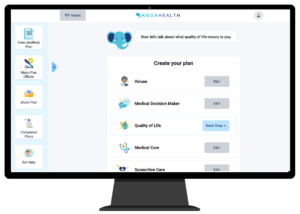Preparing for unexpected events is a crucial part of life that many people do not want to think about. However, it is important to be prepared for such situations in order to ensure your safety and well-being. Being prepared can make all the difference in how you respond to an emergency and the outcome you experience. This blog consists of valuable tips on how to prepare for unexpected events, ensuring that you have the resources and information you need to respond quickly and effectively.
Know your medical history
Knowing your medical history and having it readily available in case of an emergency is vital for efficient medical care. This includes chronic medical conditions, medications, allergies, and contact information for your primary care physician and specialists you see regularly. Having this information accessible can help healthcare providers make informed decisions and provide you with the best possible care.

Create an emergency contact list
Make a list of emergency contacts, including family members, friends, and neighbors who can be contacted in case of an emergency. Include their phone numbers and email addresses, and let them know they are on your emergency contact list. In addition, consider adding important healthcare providers to your emergency contact list to ensure comprehensive coverage during unforeseen events.
Have a plan for transportation
In the event of an unexpected event, you may need to be transported to a hospital or other medical facility. Have a plan in place for transportation, whether it is calling an ambulance or arranging for a friend or family member to drive you. Having a designated meeting point for emergencies can also aid first responders in finding you quickly and efficiently.

Keep a first aid kit handy
Prepare for unexpected events by keeping a first aid kit in your home, car, or workplace is essential. In times of unexpected accidents, having a readily available first aid kit and the skills to use it can be a lifesaver. Make sure that your first aid kit is well-stocked with bandages, gauze, antiseptic wipes, and any other necessary items. You can also take a first aid course to learn how to properly use the items in your kit. Being prepared with a well-maintained first aid kit and the knowledge to use it can make a significant difference in handling minor injuries and emergencies effectively.
Keep important documents in a safe place
Keep important documents, such as your medical history, insurance information, and legal documents, in a safe place where they can be easily accessible in case of an emergency. You may also want to make copies of these documents and give them to a trusted family member or friend. Use digital storage or cloud backups for essential files, accessible from anywhere during emergencies.
Consider getting a medical alert system
Consider getting a medical alert system, a device that you wear or keep with you at all times. If you have an emergency, pressing the button on the device will connect you to trained professionals who can assess the situation and send assistance promptly. This can be particularly useful for people who live alone, have a chronic medical condition, or want an added layer of security for peace of mind.
Plan for Your Future: Consider Advance Care Planning with Koda Health

Embracing advance care planning with Koda Health is the epitome of preparedness for life’s unexpected events. By navigating this user-friendly platform, individuals can create legally binding documents that reflect their medical preferences in the event an unforeseen circumstance occurs. Koda Health’s commitment to accessibility and security ensures that everyone can confidently articulate their values and designate a trusted healthcare proxy. With the peace of mind that comes from having a comprehensive plan in place, individuals and their loved ones can face the uncertainties of the future with newfound empowerment and assurance.
Conclusion Embracing the Journey: Empowering Your Future through Preparedness
Taking the time to prepare for unexpected events now can make all the difference in the outcome of an emergency. Preparedness benefits you and others in unexpected events, ensuring safety and well-being. Remember, emergencies can happen at any time, so it is better to be prepared than to be caught off guard. Follow the blog tips for better preparedness in handling unexpected events promptly and effectively. Take the time to prepare now, and rest easier knowing that you are ready for any situation that may arise.
